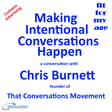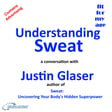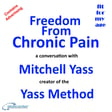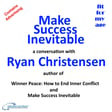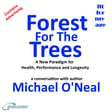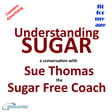
Going the Wrong Way - a conversation with author Chris Donaldson
Going the Wrong Way - a conversation with author Chris Donaldson
Chris Donaldson is now a successful businessman in Northern Ireland, but in his early twenties, at the height of The Troubles, he made the decision to travel to Australia.
You can’t blame Chris, but somehow things just didn’t go to plan.
In this entertaining episode of the Abeceder podcast Fit For My Age Chris explains to host Michael Millward how global events forced him to change his plans and created an adventure that created a lifelong passion, including time living in Dubai.
Chris describes the ups and downs and practicalities of being a motorcycle adventurer. He reflects on how memories of youthful adventures help to maintain well-being as we deal with the challenges of age.
You will leave this episode wondering what type of adventure you might embark on.
Buy Going the Wrong Way at these links
Proactive Positive Ageing.
It is always a good idea to know the risks early so that you can take appropriate actions to maintain good health, that is why we recommend The Annual Health Test from York Test.
York Test provides an Annual Health Test. An experienced phlebotomist will complete a full blood draw at your home or workplace. Hospital standard tests covering 39 different health markers are carried out in a UKAS-accredited and CQC-compliant laboratory.
A Personal Wellness Hub gives access your easy-to-understand results and guidance to help you make effective lifestyle changes anytime via your secure, personal Wellness Hub account.
Access York Test https://www.yorktest.com/and use this discount code AGE25.
Fit For My Age is made on Zencastr, because Zencastr is the all-in-one podcasting platform, that really does make creating content so easy.
If you would like to try podcasting using Zencastr visit zencastr.com/pricing and use our offer code ABECEDER.
Travel
If you fancy going on an adventure of your own remember that Ultimate Travel Club, members benefit from trade prices on flights, hotels, trains, and package hotels, and so many other travel related purchases.
Use our offer code ABEC79 to receive a discount on your membership fee.
Find out more about both Michael Millward and Chris Donalson at Abeceder.co.uk.
Matchmaker.fm
Thank you to the team at Matchmaker.fmthe introduction to Chris.
If you are a podcaster looking for interesting guests or if like Chris, you have something interesting to say Matchmaker.fm is where matches of great hosts and great guests are made. Use our offer code MILW10for a discount on membership.
Being a Guest
If you would like to be a guest on Fit For My Age, please contact using the link at Abeceder.co.uk.
We recommend the podcasting guest training programmes available from Work Place Learning Centre.
We appreciate every like, download, and subscriber.
Thank you for listening.
